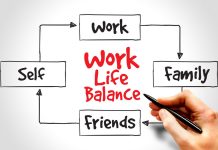Can you imagine losing your job after a few years? Do you have this fear that someday someone else, better than you, might take away the position you have now? I assume the answer would be a big Yes. Do you know why you have this fear?
It’s quite easy to brainstorm your past activities to find out the answer. Let’s guide you finding the answer. First, can you recall why got this job? The possible answers are; your degree or previous working experience required for this job. Secondly, start asking yourself why you fear that someday someone else might take away your position? The answer, I would say, is your lack of commitment to “continuous learning”. Yes, your lack of commitment to “continuous learning” is the biggest reason behind your fear of losing the job.
It’s a shame that many of us stop learning once we get a job. Learning is a continuous process and it has different forms. For example, when you were at the university/college/school, you learn from attending lectures, doing exercises, group works, attending seminars, workshops etc. Then, when you are at work, you attend different workshops, seminars, training to learn new things/skills; in addition to learning by doing at the work. All these activities result in your promotion to the next level; which means that you improved your skills over time and the company, you are working for, is happy with your performance.
“Continuous learning” is a natural process and we all experience this at different stages of our life. For example, when a baby is born, after a while we expect the baby to learn to speak, walking and so on. Then, when the baby gets into school, we expect the baby to learn with time and move on from one class/level to the next. So, why we, most of us, stop learning when we get into a job? Why don’t we think that it’s a natural process to keep learning? The person who keeps learning with time usually goes higher up in the organization, compared to the rest who doesn’t improve so much over the time.
So, how can we maintain this “continuous learning”? It’s so simple. Tell yourself repeatedly that “continuous learning” is the key to success, you need this, you will do well, and it is for your own development. If you feel tired or stressed, just take a small break, travel somewhere for a few days or spend time with your family/friends; and start again. You will be fine. A good strategy is to plan what you want to learn and set a time frame for this. For example, if you are working as a project manager, then you might consider learning one of the project management software that will help you keep track the progress of your project. Then, do some search either on Google or ask some of the experts for their suggestions on “what is the best software”, “how to learn (do you need to attend any training sessions or just learn by yourself)”, “how long (hours, days) will it take” etc. After that, set a time frame depending on your schedule and how fast you want to learn; allocate a few hours per day/week for that task, and most importantly stick to your plan. Usually, we, as humans, lose our interest in learning after a few days. So, don’t do this; tell yourself that it’s for your own development, and will be benefited in the long run spending a few hours every day/week. This a few hours per day/week is your investment to continuous learning.
To finish it off, you may have several things on your wish list that you want to learn. In this case, the best thing is to prioritize your tasks and start with the most important one. Here, important means the one which will be beneficial for your career development and the one you will use more in the coming days. It’s ok to have more than one on your wish list; but, don’t start all at once. Another important thing to consider is your family time. Don’t mix up among your work life, family life, resting period and this small time for your development. A proper balance of all these is very important to be successful and happy in life. To help you get started, you may allocate 8-11 hours per day for your work, 2-3 hours for your family (this includes e.g. having dinner with your partner/wife/kids etc.), around 7-9 hours for sleep, and 1-2 hours for your continuous learning. Stick to your schedule as much as possible. And, on weekends, you may try to take breaks to travel somewhere nearby or meet friends/relatives or spend quality time with your family. All these are important to have a good balance in your life. So, enjoy all the aspects of your life and keep learning.













































